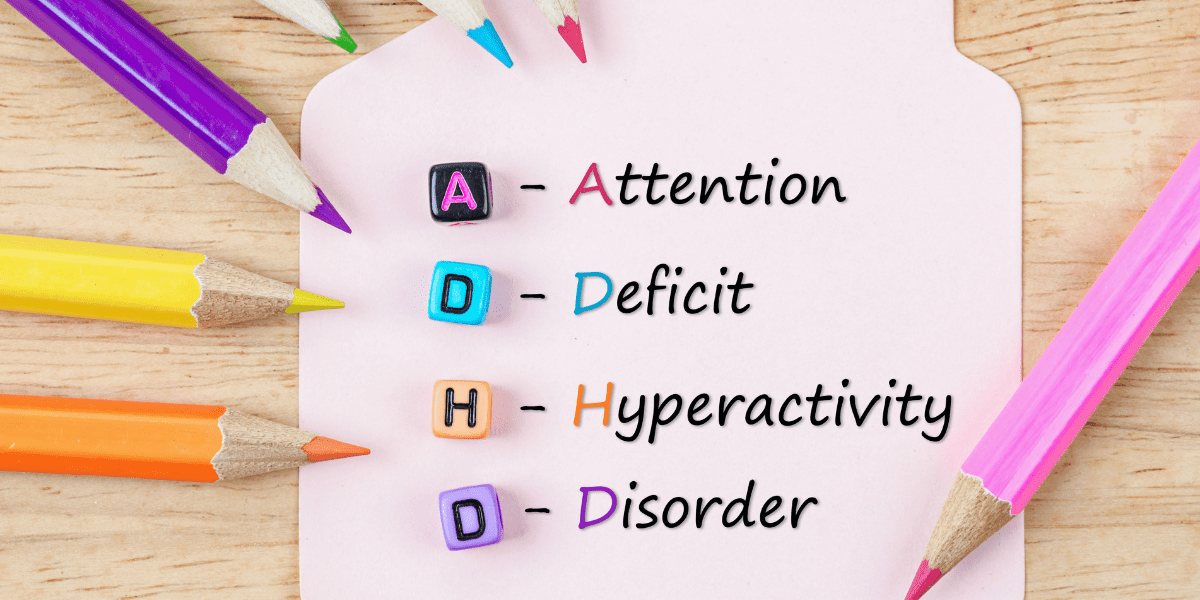4 Ways ADHD Affects Cognitive Skills and Learning, and How LearningRx Can Help
Has your child been diagnosed with ADHD? Or are you concerned they might be showing signs of it?
In their most recent national survey of children’s health, the CDC estimated that 9.8% of children and teens between the ages of 3-17 in the United States (about 6 million) have been diagnosed with ADHD.
ADHD is characterized by inattentiveness, hyperactivity, and/or impulsivity. This, plus the high incidence of learning disorders among those with ADHD, can make learning extremely difficult. Read on to learn more about what ADHD is, how ADHD affects cognitive skills and learning, and what to do if your child has been diagnosed with ADHD.
What Is ADHD?
ADHD, or attention deficit hyperactivity disorder, is a neurological condition resulting in a variety of symptoms involving attention, impulse control, and hyperactivity. Although the list of symptoms and behaviors ADHD causes have been recognized since 1902, the name for the disorder has changed over time.
One person’s ADHD symptoms can be drastically different from another’s, depending on which of three ADHD subtypes they have:
- Inattentive ADHD (also referred to as ADD): involving only inattentive symptoms
- Hyperactive-Impulsive ADHD: involving only hyperactive/impulsive symptoms
- Combined ADHD: involving both inattentive and hyperactive/impulsive symptoms
In general, the symptoms typically associated with ADD/ADHD (such as hyperactivity and impulsivity, a child who can’t sit still, etc.) signify either hyperactive-impulsive or combined ADHD. Inattentive ADHD (or ADD) symptoms revolve around problems with attention.
Combined ADHD, with symptoms of both hyperactivity and inattention, is the most common of the three types.
4 Ways ADHD Affects Cognitive Skills and Learning
ADHD affects the cognitive skills we use every day to think, learn, and remember. When skills like attention and working memory are affected, that can make learning—especially in a traditional learning environment—very difficult. Here are just four ways that ADHD can affect a child’s cognitive skills and learning.
1. Attention Struggles
Inattentiveness is a classic ADHD symptom. Kids with ADHD are often easily distracted and overstimulated, and they struggle to complete tasks that require concentration. As a result, they often look for excuses to avoid studying.
Classrooms (especially grade school classrooms) can be overwhelming to a child with ADHD. There are so many distractions in one room: other people, colors, activities, technology, noise…and so on. A child who struggles with ADHD will easily lose focus in this kind of environment.
Tip: Turning off notifications on computers and tablets and taking more breaks throughout the day are two things that can help kids with ADHD focus better in the classroom.
2. Trouble With Executive Functioning Skills
Children with ADHD struggle with important executive functioning skills like working memory, self control, organization, and flexible thinking. They can have difficulty with reading, writing, organization, putting emotions into words, and analyzing things logically.
Struggles with inattention can further contribute to memory issues…it’s hard to learn things well enough to remember them when you struggle to focus!
It’s not that children with ADHD aren’t capable of learning. Rather, they tend to experience a gap between what they’ve learned and the ability to carry that knowledge over into their schoolwork, resulting in failed tests, missed assignments, and so on.
Tip: Positive reinforcement and learning to be more self-aware and to manage stressful situations can help children with ADHD cope with these difficulties and find greater success in learning.
3. Communication Issues
Struggles with hyperactivity and impulsivity can make social interactions difficult for children with hyperactive-impulsive or combined ADHD. They may become easily irritated and struggle to get along well with others. In the classroom, this can make it difficult for them to work effectively with their classmates and teachers.
In addition, ADHD often coincides with other diagnoses that affect social interactions, such as oppositional defiant disorder (ODD), conduct disorder (CD), autism, or Tourette’s syndrome.
Tip: Diagnosing and properly addressing any coinciding disorders can be a big help for kids with ADHD who struggle with communication.
4. Difficulty Controlling Body Movements
Kids with hyperactive-impulsive or combined ADHD struggle to regulate and control their body movements. They constantly need to be in motion.
As you can imagine, this makes it difficult to sit still for extended periods of time (something that is already difficult for children—especially young children—to do!). It can be a struggle for children with ADHD to sit through classes and tests, which only contributes further to their difficulties with concentration and attention.
This can be frustrating to a child with ADHD, making them want to get out of those situations whenever possible. As a result, they end up missing lessons or instructions that could make their assignments easier.
Tip: Providing kids with alternative ways to move while remaining at their desks can help, such as using fidget spinners or standing desks.
Has Your Child Been Diagnosed With ADHD? Here’s What You Can Do
If your child has been diagnosed with ADHD and you’re not sure how to help them, start with the following:
Learn All About It
One of the best things you can do to help your child with ADHD is to learn as much as you can about their diagnosis:
- The basics of ADHD
- Symptoms to watch for
- How ADHD can affect daily life
- The link between ADHD and other mental health struggles such as anxiety, depression, and low self-esteem
Read everything you can get your hands on (here are five books to start with). Consult with your doctor about possible medications or other interventions like therapy, especially if your child is showing signs of mental health struggles.
Talk About It
It’s important to talk through your child’s diagnosis with them and help them understand how their ADHD may impact the different areas of their life (school, home, friends, and so on). Empower them to understand and manage their symptoms, and help them see their strengths, rather than focusing only on their struggles.
Talk your child through ways they can ask for help when they need it, and make sure they know they’re not alone. Communicate to them that not only will you make sure they have the support they need, but that many people have the same diagnosis, including celebrities and other highly successful people.
Make a Plan
In addition, talk with your child’s teachers and school administration, as well as their doctor, psychologist, and any other professionals you’re working with to create a plan to support your child in school. An IEP (Individualized Education Program) or 504 plan can make a huge difference in your child’s learning experience.
Consider Brain Training With LearningRx
Strengthening your child’s cognitive skills can help them improve school performance, reduce stress, and boost their overall quality of life.
Brain training, a type of cognitive skills training, works to strengthen the cognitive skills our brain uses every day to think, learn, and perform. This includes attention skills, processing speed, and memory (both working and long term)—all of which can help kids with ADHD improve their school performance.













